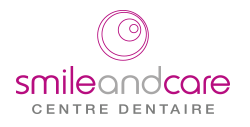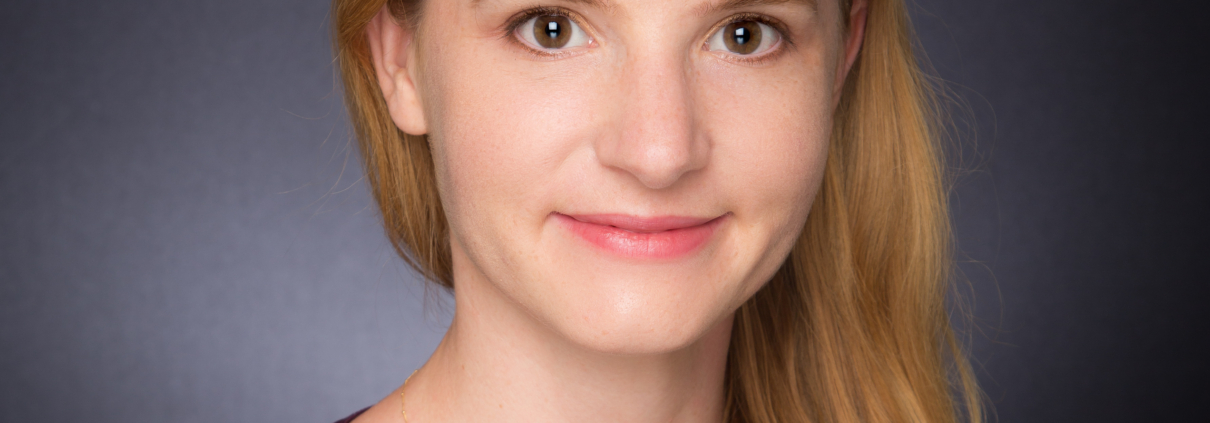Interview
“Our job is a form of craftsmanship: we have to master the technical skills and be creative.”
Dr Maria Bilinska, Dentist at Smile and Care
From a very young age, Maria Bilinska dreamed of becoming a dentist. An old diary – found years later – bears witness to this. What she loves most about her job is the contact with patients and the ability to offer highly technical solutions in their treatments. This specialist joined the Smile and Care team at Eaux-Vives a year ago, and her enthusiasm is clear. Interview.
What do you like most about your job?
Being able to support patients in their treatments while working in a pleasant environment. Dentistry gives me a sense of accomplishment by truly listening to my patients. Our job is a form of craftsmanship: we have to master the technical skills and be creative. I feel like I’ve found my calling.
In your view, what qualities are necessary for doing this job well?
Working as a dentist requires solid theoretical training, excellent dexterity, concentration, and precision. The human element is fundamental: showing patience and tact is crucial for easing patient anxieties, as is giving detailed explanations of the reasons for – and course of – the treatment plan. Fear of the dentist – the avoidance of dental care – can have devastating consequences on a patient’s overall health. Our role is both educational and medical. It’s also important to be curious, as the medical profession is constantly evolving; indeed, we have to undergo training throughout our careers.
What types of treatments do you provide?
As a general dentist, my role is to assess oral health, carry out examinations, treat cavities, fix broken teeth, treat infected roots, and offer prosthetic solutions (onlays, crowns, bridges, implant-supported prostheses, removable prostheses…), but also to carry out simple extractions in the event of significant tooth damage. If the treatment plan requires a more specific technique – orthodontics, surgery, or periodontics – I refer my patients to a specialist within our dental clinic.
Give us an idea about a particular technical case…
Occasionally, patients can present real challenges. It’s important to support them with adopting new lifestyle habits and to help them understand that some of their habits are bad for their health – here, I’m referring in particular to tobacco, sugary drinks, or issues with bruxism[1]. We offer a range of solutions, in collaboration with other medical specialists – osteopaths, nutritionists, etc. Dentistry is a very holistic discipline.
You regularly hold interdisciplinary sessions with other Smile and Care specialists. How are these exchanges beneficial?
Every treatment plan needs to be taken as a whole and involve all the practitioners (general dentist, orthodontist, periodontal specialist, implant specialist, etc.) During the interdisciplinary sessions, we discuss any anatomical and medical considerations, and examine the occlusion and potential limitations in order to provide highly personalised treatments that are adapted to each patient’s circumstances.
Smile and Care regularly invests in technological innovation. Which instruments do you use the most?
Without a doubt, the digital scanner is an indispensable tool. It allows us to scan and send dental impressions directly to the lab, to show patients 3D scans, and improve workspace ergonomics. Making dental impressions using intraoral scan is also much more comfortable for the patients than the classic dental impression paste.
What are your professional development goals?
I want to stay abreast of technical and scientific innovations, as these are constantly evolving. To continue being an excellent dentist, I want to maintain my training, document my work, and develop.
What advice would you give a youngster who is starting out or who would like to practice your profession?
Find mentors in the profession and be sure that they are people who aren’t afraid to tell you the truth, because those who only tell you what you want to hear won’t help you develop. Keep your ego in check. Don’t forget that you’re there for the patients, and not the other way around. I would also add that teamwork, in an environment of mutual understanding and respect, is crucial.
[1] Bruxism is the involuntary and habitual grinding of the teeth, typically during sleep (Source: OED).







